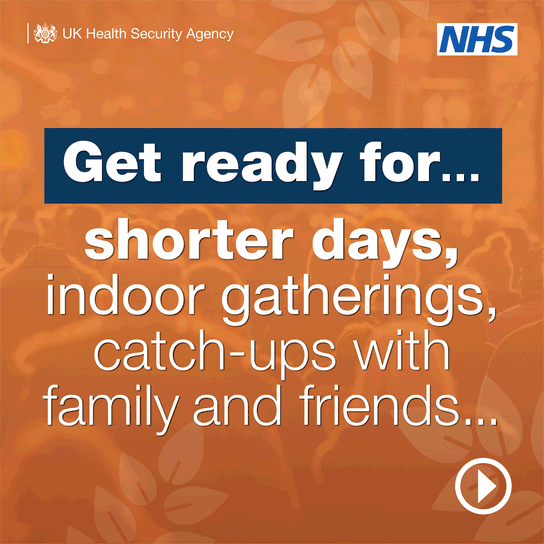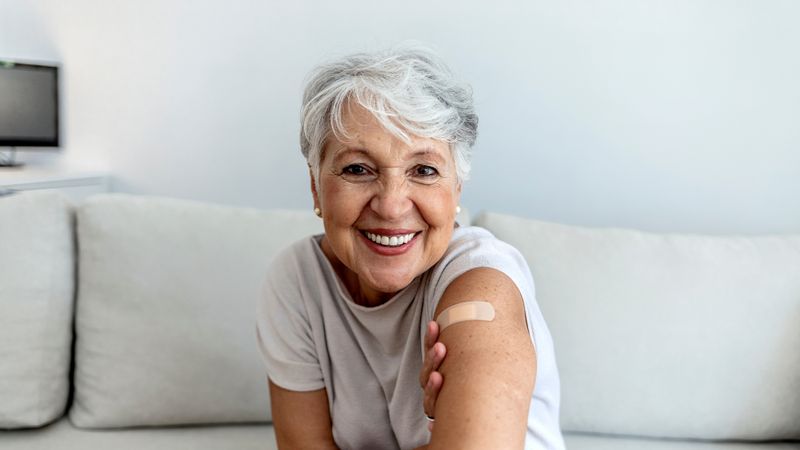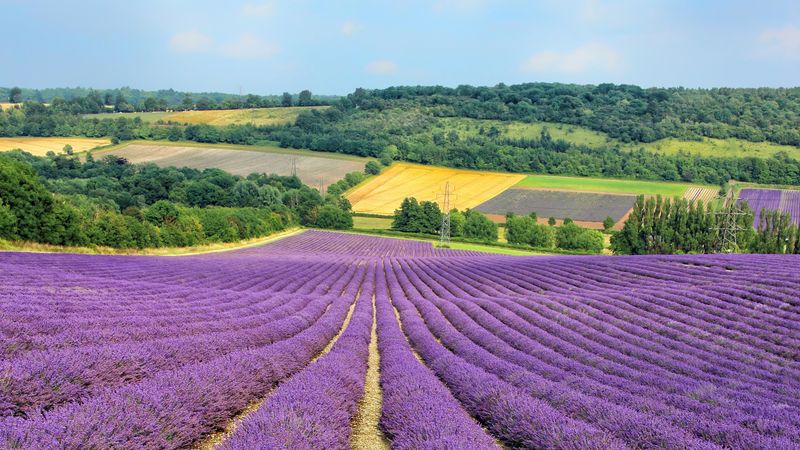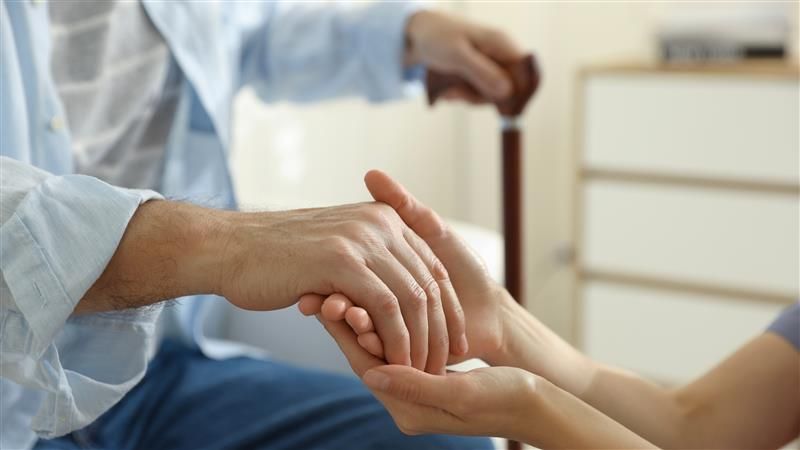1. How do I protect myself and my loved ones from COVID-19 and flu this winter?
As the nights close in, temperatures drop and we start to spend more time indoors with family and friends, a range of simple actions can help reduce the spread of COVID-19 and other respiratory infections, like flu, that usually peak during autumn and winter.
To protect those at highest risk:
- Get vaccinated if eligible. There is more information about who is eligible, and how to book, below.
- Let fresh air in if meeting others indoors.
- Practice good hygiene, including washing your hands with warm, soapy water, and catching your coughs and sneezes with a tissue that you safely bin after use.
- Stay home if you can if you have symptoms typical of flu or COVID. The full guidance on what to do if you have symptoms is available at: Guidance for Living Safely with respiratory infections including coronavirus (COVID-19), and
- Consider wearing a face covering.
2. Who is eligible for a COVID-19 autumn booster and free flu vaccine?
We are now living with COVID-19 and vaccination remains the best form of protection for vulnerable residents – because increasing age and underlying health conditions are two factors strongly linked to a risk of severe COVID-19.
Flu vaccination can also help reduce the need for a stay in hospital. Recent UKHSA modelling shows last year’s flu vaccinations prevented around 25,000 hospitalisations in England.

Flu and COVID, spread more easily in the colder months as we mix more indoors. Following commonsense precautions like good hygiene, along with vaccination for vulnerable people, can all help reduce infection
So, get vaccinated if you are eligible to ensure you are protected. You can check your eligibility here.
3. I am in an eligible group, so how do I get my COVID autumn booster and flu jab?
All eligible adults including people aged 65 and over and anyone with longterm health conditions, or pregnant, are urged to book their flu and COVID-19 vaccines online via the NHS website.
Do this by downloading the NHS App. Alternatively, call 119 for free if you can’t get online, to give yourself the best protection against severe illness and hospitalisation.
4. What do I do if I test positive for COVID-19?
If you have a positive COVID-19 test result you should try to stay at home and avoid contact with other people for 5 days after the day you took your positive test, even if you have no symptoms.
You should avoid meeting people at higher risk of becoming seriously ill with COVID-19 for 10 days after the day you took your test.
See the full guidance on what to do if you test positive for COVID-19.

“As we continue to live with COVID-19 we expect to see new variants emerge”
5. Should I be worried about the new COVID-19 variant?
It’s normal for viruses to mutate and change and as we continue to live with COVID-19 we expect to see new variants emerge.
There is limited information available at present on BA.2.86 so the potential impact of this particular variant is difficult to estimate. But we can say that thanks to the success of our vaccine programme, and natural immunity built up through infection, we have established strong, broad immune defences against new variants throughout the population.
Of course, some people remain more vulnerable to severe illness from COVID-19. That’s why, as a precautionary measure, the Government brought forward the autumn vaccination programme to the 11th September - to deliver greater protection against the potential impact of BA.2.86 variant.
As with all emerging and circulating COVID-19 variants – both in the UK and internationally – the UK Health Security Agency (UKHSA) continues to monitor BA.2.86 and to advise government and the public on how to protect ourselves, and live our lives as normally as possible, as they learn more.
In the meantime, please come forward for the vaccine if you are eligible when you are called.
6. Where can I find out how many people have COVID-19?
We continue to closely monitor the case rates in Kent, so far as the data based on hospital admissions, death rates and national surveillance reports, allows us.
For the latest national, regional and local authority-level data, see the UK Health Security Agency Dashboard’s Cases in England | Coronavirus in the UK (data.gov.uk).




